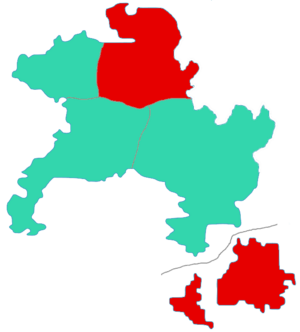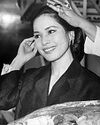Akashian general election, 1970
| |||||||||||||||||||||||||||||||||||||||||||||||||||||||||||||||||||||||||||||||||||||
200 seats in the National Assembly 101 seats needed for a majority | |||||||||||||||||||||||||||||||||||||||||||||||||||||||||||||||||||||||||||||||||||||
|---|---|---|---|---|---|---|---|---|---|---|---|---|---|---|---|---|---|---|---|---|---|---|---|---|---|---|---|---|---|---|---|---|---|---|---|---|---|---|---|---|---|---|---|---|---|---|---|---|---|---|---|---|---|---|---|---|---|---|---|---|---|---|---|---|---|---|---|---|---|---|---|---|---|---|---|---|---|---|---|---|---|---|---|---|---|
| Turnout | 88,8% | ||||||||||||||||||||||||||||||||||||||||||||||||||||||||||||||||||||||||||||||||||||
| |||||||||||||||||||||||||||||||||||||||||||||||||||||||||||||||||||||||||||||||||||||
 Most voted party by province | |||||||||||||||||||||||||||||||||||||||||||||||||||||||||||||||||||||||||||||||||||||
| |||||||||||||||||||||||||||||||||||||||||||||||||||||||||||||||||||||||||||||||||||||
A general election was held in Akashi on 27 June 1970. Following reforms to "open up the system", the National Assembly switched to parallel voting, half elected by nationwide proportional representation, and half elected from constituencies using single transferable vote.
The election was ruled by the aftermath of the Summer of Freedom: Yurika Ehara was retiring as Prime Minister but running in the presidential election, leaving Masaki Ōshiro to lead the party in the National Assembly. While the surge of anti-National Union sentiment in 1968–1969 had benefited the opposition, it was once again fractured by the chaotic disintegration of the protests.
The start of the "siege economy" brought an end to decades of rapid growth, which further polarised the opposition parties. Masaki's low-key personality proved no match for other party leaders, but appealed to a public exhausted by the chaos of the Summer of Freedom and wary of the new economic uncertainty.
Results
| General election, 27 June 1970 | |||||||||
|---|---|---|---|---|---|---|---|---|---|

| |||||||||
| Party | Party list | Constituency | Total seats |
+/- | |||||
| PR | % | +/− | STV | % | +/− | ||||
| National Union | 1.364.704 | 28,5% | -21,8% | 2.420.884 | 50,5% | +50,5% | 101 | -9 | |
| Socialist Party | 574.612 | 12,0% | +2,0% | 551.290 | 11,5% | +11,5% | 22 | ±0 | |
| National Cooperative Party | 478.844 | 10,0% | +0,9% | 431.445 | 9,0% | +9,0% | 14 | -6 | |
| Agrarian Party | 306.460 | 6,4% | +0,2% | 263.661 | 5,5% | +5,5% | 10 | -3 | |
| Liberal Party | 301.672 | 6,3% | +0,9% | 225.310 | 4,7% | +4,7% | 10 | -2 | |
| National Democratic Party | 296.883 | 6,2% | +1,0% | 201.341 | 4,2% | +4,2% | 9 | -2 | |
| Communist Party | 292.095 | 6,1% | +1,1% | 191.753 | 4,0% | +4,0% | 9 | -1 | |
| Reform Party | 287.306 | 6,0% | +0,8% | 134.227 | 2,8% | +2,8% | 8 | -3 | |
| United Akashi | 277.729 | 5,8% | +5,8% | 119.846 | 2,5% | +2,5% | 7 | +7 | |
| Conservative National Party | 167.595 | 3,5% | +1,7% | 67.114 | 1,4% | +1,4% | 3 | +3 | |
| Social Credit Party | 143.653 | 3,0% | +1,0% | 57.526 | 1,2% | +1,2% | 3 | +3 | |
| Akashi Renewal Party | 129.288 | 2,7% | +1,0% | 47.938 | 1,0% | +1,0% | 2 | +2 | |
| Freedom League | 119.711 | 2,5% | +0,9% | 38.351 | 0,8% | +0,8% | 1 | +1 | |
| Independents | 47.884 | 1,0% | -0,7% | 43.144 | 0,9% | +0,9% | 1 | -1 | |
| Total | 4.788.437 | 100% | — | 4.793.829 | 100% | — | 200 | — | |
| Registered voters and turnout | 5.392.384 | 88,8% | — | 5.392.384 | 88,9% | ||||
- Government: National Union–Socialist Party–National Cooperative Party coalition.
Shocking the public and opposition, Masaki pulled off a final majority for the NU, now down to one seat. The party's over 20% fall in party list votes was compensated by winning a narrow majority of first preference votes in constituencies.
Disappointingly for the opposition, there was no major breakthrough that would end the NU's dominance. The appearance of United Akashi merely added to a crowded centre-right field that already included the National Democratic Party, Reform Party, and Liberal Party. The abolition of the electoral threshold allowed the Akashi Renewal Party and Freedom League to enter the legislature for the first time.
The high polarisation among the electorate resulted in the smallest independent presence in the legislature, with only one seat.
Although Masaki won a majority, he faced an internal fracture within the NU caused by the Summer of Freedom. In an attempt to shore up his position, he formed a coalition with the SP and NCP. This kept him Prime Minister until 1972, when his government lost a budget vote that forced a snap election.


